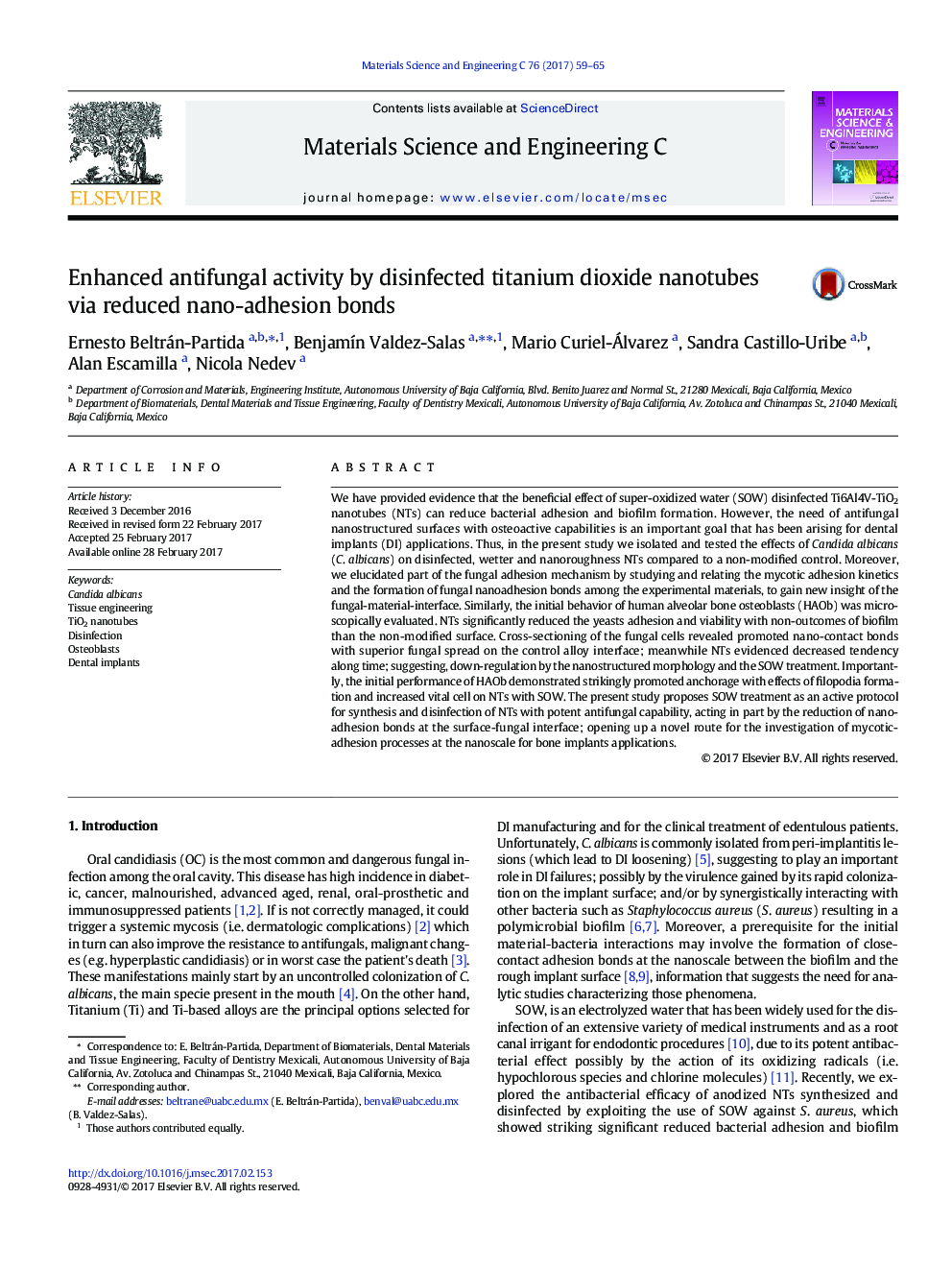| کد مقاله | کد نشریه | سال انتشار | مقاله انگلیسی | نسخه تمام متن |
|---|---|---|---|---|
| 5435092 | 1509145 | 2017 | 7 صفحه PDF | دانلود رایگان |
- Super oxidized water allows the synthesis of anti-fungal TiO2 nanotubes.
- Anti-fungal activity of nanotubes in part involves the disruption of fungal nano-adhesion bonds.
- The promoted osteoblastic behavior of NTs was not altered.
We have provided evidence that the beneficial effect of super-oxidized water (SOW) disinfected Ti6Al4V-TiO2 nanotubes (NTs) can reduce bacterial adhesion and biofilm formation. However, the need of antifungal nanostructured surfaces with osteoactive capabilities is an important goal that has been arising for dental implants (DI) applications. Thus, in the present study we isolated and tested the effects of Candida albicans (C. albicans) on disinfected, wetter and nanoroughness NTs compared to a non-modified control. Moreover, we elucidated part of the fungal adhesion mechanism by studying and relating the mycotic adhesion kinetics and the formation of fungal nanoadhesion bonds among the experimental materials, to gain new insight of the fungal-material-interface. Similarly, the initial behavior of human alveolar bone osteoblasts (HAOb) was microscopically evaluated. NTs significantly reduced the yeasts adhesion and viability with non-outcomes of biofilm than the non-modified surface. Cross-sectioning of the fungal cells revealed promoted nano-contact bonds with superior fungal spread on the control alloy interface; meanwhile NTs evidenced decreased tendency along time; suggesting, down-regulation by the nanostructured morphology and the SOW treatment. Importantly, the initial performance of HAOb demonstrated strikingly promoted anchorage with effects of filopodia formation and increased vital cell on NTs with SOW. The present study proposes SOW treatment as an active protocol for synthesis and disinfection of NTs with potent antifungal capability, acting in part by the reduction of nano-adhesion bonds at the surface-fungal interface; opening up a novel route for the investigation of mycotic-adhesion processes at the nanoscale for bone implants applications.
149
Journal: Materials Science and Engineering: C - Volume 76, 1 July 2017, Pages 59-65
